That Waiver You Signed May Not Mean You Wave Goodbye to Your Right to Sue (Part 2 of 2)
Part 1 of this blog post discussed a tragic story about a young man who suffered an injury during a Monterey County Spartan Race. The young man fractured two cervical vertebrae, while attempting a race obstacle, and was rendered a paraplegic. All participants in the Spartan Race sign a waiver and release of liability. This leads to the question: If you sign a liability release or waiver can you still sue and recover for your damages? The answer is: It depends.
Generally, an individual who signs a waiver to not hold another party responsible for injury that might be caused by that party’s negligence, has expressly assumed the risk and is barred from recovering from that party. However, just because someone signs a waiver or release of liability does not mean that the waiver is enforceable. In addition, just because a waiver is signed does not necessarily mean that the waiver covers the events or act that give rise to the injury.
For a release of liability or waiver to be enforceable it must: 1) be clear and unambiguous; 2) the injury producing act must be reasonably related to the purpose for which the person signed the waiver; and 3) the release cannot fly in the face of public policy.
The first enforceability requirement is self-explanatory. The language used in the waiver must explain the purpose of the waiver with clarity. The second enforceability requirement simply means that what caused the injury must be reasonably related to the acts that the waiver sought protection from. For example, if the young man in the Spartan Race signed a waiver releasing the Spartan race from its negligence related to his participation in the race, this would not necessarily release the Spartan race from liability if it served food at the race and negligently poisoned the participant. Likewise, the Spartan race may not be released from liability if one of its employees crashed his car into the participant in the parking lot. In these examples, the acts are not reasonably related to his participation in the race.
The last enforceability requirement simply stands for the proposition that a person or party cannot enforce a release when doing so violates public policy. The law has set forth a few standards as to what is considered in violation of public policy. For example, a release or waiver that attempts to release a person or party from his or its gross negligence may not be enforceable. Gross negligence, unlike mere negligence, involves some sort of aggravated misconduct. For example, if the Spartan Race knew that a certain obstacle routinely caused numerous and serious injuries, but failed to take action, that could be considered gross negligence.
In addition to the above, general contract defenses may preclude the enforceability of a release or waiver of liability. These defenses include: fraud, duress, lack of capacity and unconscionability. An example of fraud would be a person telling someone they are signing a document other than a release. An example of duress would be forcing someone to sign a waiver or release that deprived him or her of his free will. An example of lack of capacity would be a situation where someone does not have the mental competence (due to disability, old age, or other reasons) to appreciate what he or she is signing. Finally, an example of unconscionability would include a situation where the release language is hidden in small print in the middle of a multi-page document.
In sum, the enforceability of a waiver or release of liability is dependent on several factors. A waiver or release of liability should be analyzed by a skilled attorney to determine if the injured party still has a claim. The attorneys at the Piccuta Law Group have experience in analyzing the enforceability of waivers and releases of liability.
The Piccuta Law Group recently settled a case against the provider of an inflatable bouncy slide where the client broke her leg using the slide. In that case, the minor client’s parents had signed a release of liability supposedly releasing the provider of the bouncy slide. Nevertheless, the Piccuta Law Group was able to advance the claim, argue against the enforceability of the waiver and secure a fair settlement for the client.
Contact the Piccuta Law Group today if you or a loved one has suffered an injury due to the negligence of another. One of our attorneys will provide a free consultation to determine if you have a case.

